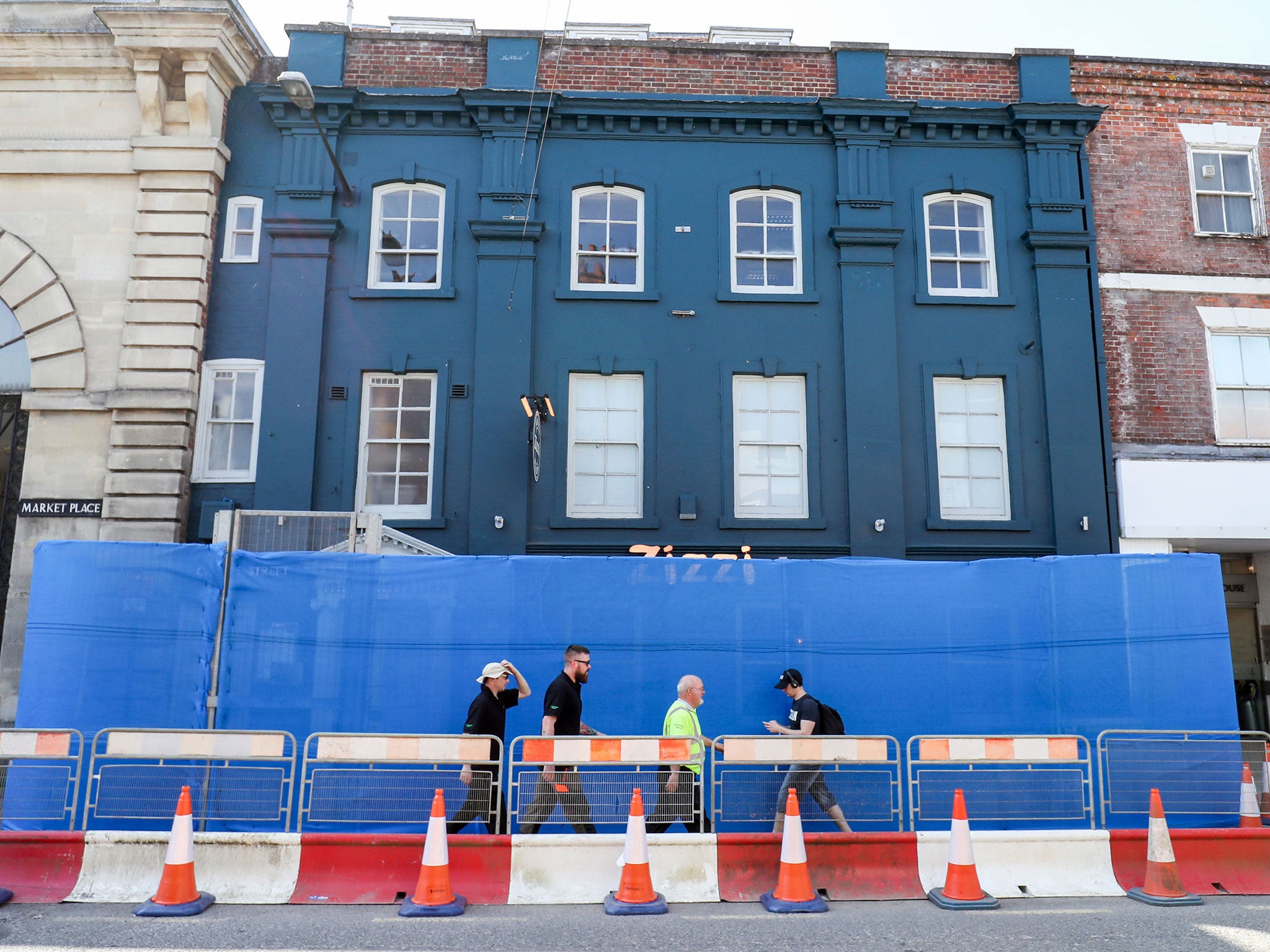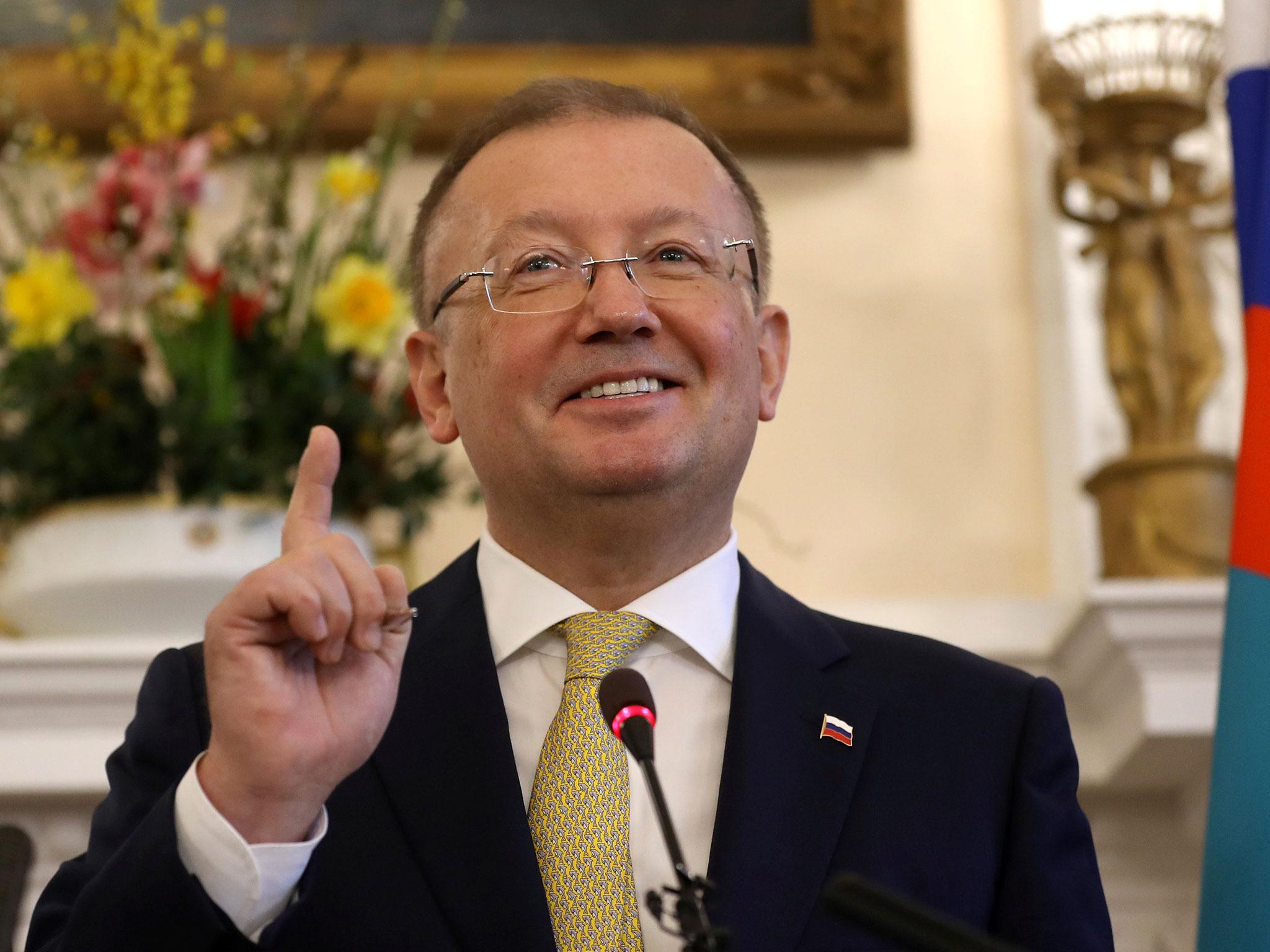Salisbury attack: Authorities deny giving mixed messages after official says 'toxic' nerve agent still present
'City is safe for residents and visitors,' officials say amid preparations for decontamination

Your support helps us to tell the story
From reproductive rights to climate change to Big Tech, The Independent is on the ground when the story is developing. Whether it's investigating the financials of Elon Musk's pro-Trump PAC or producing our latest documentary, 'The A Word', which shines a light on the American women fighting for reproductive rights, we know how important it is to parse out the facts from the messaging.
At such a critical moment in US history, we need reporters on the ground. Your donation allows us to keep sending journalists to speak to both sides of the story.
The Independent is trusted by Americans across the entire political spectrum. And unlike many other quality news outlets, we choose not to lock Americans out of our reporting and analysis with paywalls. We believe quality journalism should be available to everyone, paid for by those who can afford it.
Your support makes all the difference.Authorities have denied giving mixed messages on public safety following the Salisbury nerve agent attack after an official said “toxic” levels of the chemical were still present.
The Department for Environment, Food and Rural Affairs (Defra) insisted the city was safe after its chief scientific adviser, Ian Boyd, told a public meeting novichok could still be harmful in “very specific locations” where it remains in high concentrations.
“We do know that there are hotspots like that around, so we have to make those assumptions that some of the hotspots we’ve still got to find,” he added.
The statement sparked fresh uncertainty in Salisbury, where residents have expressed outrage over the way information on operations and safety advice has been relayed to the public.
Officials previously revealed a small amount of the deadly nerve agent was put on former double agent Sergei Skripal’s door handle in liquid form, and then spread around Salisbury by affected people and items.
The hotspots are contained within nine cordoned off areas where decontamination operations are starting to return them to public use.
“As Public Health England (PHE) have stated, Salisbury is safe for residents and visitors,” a spokesperson for Defra said.
“All work undertaken on each site will take appropriate measures to ensure that there is no additional risk to the public.
“There is no need to take any additional precautions. Cordons are in place to protect the public from any potential risk.”
But several of the locations were not cordoned off immediately after the incident, with a pub that Mr Skripal and his daughter visited shortly before falling ill only being sealed off two days later.
Hundreds of people who visited The Mill and a Zizzi restaurant where the pair ate were only given “precautionary” advice to wash their clothes and belongings a week after the incident.
As PHE reiterated advice that the risk to Salisbury residents was low, hundreds of military personnel wearing protective equipment swept in to examine sites across the city and remove dozens of vehicles, including some that had been in use.
Residents told The Independent they were “scared” by the dramatic operation and accused authorities of stoking uncertainty and fear with a drip feed of changing information.
Priscilla Bernard, 70, pointed out that the bench where Mr Skripal and his daughter collapsed was not removed for several days, adding: “It has all been a little too late. There has been a lack of response.”
At a press conference announcing the start of decontamination work on Tuesday, The Independent asked officials if they accepted “mixed messages” were given following the attack.
“We think that at a lot of the sites the risk is likely to be quite low because of that secondary and tertiary transfer,” a senior Defra representative replied.
“People can be as reassured now as they have been from the messages from PHE that Salisbury remains safe outside the cordons.”
Four new barriers have been installed around The Maltings shopping centre, The Mill pub, and Zizzi restaurant and Riverside House for chemical cleaning, which is expected to take months and cost millions of pounds.
Wiltshire Council said the enlarged cordons would allow the task to be carried out safely and thoroughly by up to 200 specialist military personnel, adding: “Safety remains paramount. The city is safe outside of the cordoned sites.”
A police station, council building and ambulance stations will be prioritised in the work, which will also see Mr Skripal’s home and that of Detective Sergeant Nick Bailey cleaned and then retested for traces of novichok.
It will focus on a police evidence room and two lockers inside Bourne Hill station, with services temporarily moved to other locations in and around Salisbury.
Mr Skripal’s house is still part of the ongoing police investigation and will be the last to be released for decontamination.
Dozens of conspiracy theories over the Salisbury attack have emerged and Russian authorities have questioned the UK’s evidence, while British officials have accused the Kremlin of concocting “fantasies” amid an investigation into state broadcaster Russia Today.
Russia’s ambassador to the UK sensationally suggested that the Skripals may have been injected with nerve agent produced at Porton Down’s Defence Science and Technology Laboratory on Friday.
Alexander Yakovenko called refusals to allow access to the victims tantamount to “an abduction of two Russian citizens” and accused Britain of lying over the case, a chemical weapons attack in Syria and cyber attacks.
He claimed that a classified report by international inspectors said novichok found in the victims’ blood samples showed little sign of decomposition, even though the agent would normally be expected to react with naturally occurring chemicals inside the body.

“This is strange, given that 18 days passed between the poisoning and the arrival of the OPCW in the UK,” said Mr Yakovenko.
“It might mean that the chemical was intentionally injected just before the blood samples were taken.”
He repeated a frequently circulated but unsubstantiated theory that the speed with which the chemical was identified suggested the UK already had its own samples, pointing out Porton Down’s proximity to Salisbury.
International inspectors from the Organisation for the Prohibition of Chemical Weapons (OPCW) confirmed Britain’s assessment that novichok, a group of nerve agents developed by the Soviet Union, was used in the attack.
They noted that the chemical was “of high purity”, meaning it degrades slowly and does not produce significant vapour or gas.
But Mr Yakovenko challenged OPCW’s independence investigation, claiming experts worked “under the control of the British side”.
Mr Bailey and Ms Skripal, 33, have both been released from hospital but her 66-year-old father remains in a serious condition.
The British government accused Russia of culpability in the attack and said the country’s intelligence agencies had been spying on the Skripals for at least five years.
The class of nerve agents was created by the former Soviet Union, but Vladimir Putin’s government has denied ever developing it – and also said all chemical stockpiles were destroyed.
The Kremlin says it was not involved in the attack on Mr Skripal, who moved to England following a high profile spy swap in 2010, but it has sparked the expulsion of Russian diplomats by Britain and its allies.
Tensions have worsened further in the wake of an alleged chemical attack by Bashar al-Assad’s forces on the rebel stronghold of Douma in Syria, sparking British, American and French airstrikes on Russia’s ally.
Join our commenting forum
Join thought-provoking conversations, follow other Independent readers and see their replies
Comments